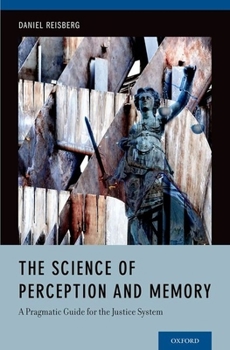The Science of Perception and Memory: A Pragmatic Guide for the Justice System
A robbery victim tries to remember how the crime unfolded and who was present at the scene. A medical patient recalls the doctor saying that the pain in her side wasn't worrisome, and now that the tumor is much larger, she's suing. An investigation of insider trading hinges on someone's memory of exactly what was said at a particular business meeting. In these and countless other examples, our ability to remember our experiences is crucial for the justice system. The problem, though, is that perception and memory are fallible. How often do our eyes or memories deceive us? Is there some way to avoid these errors? Can we specify the circumstances in which perceptual or memory errors are more or less likely to occur? Professor Daniel Reisberg tackles these questions by drawing on the available science and his personal experience training attorneys. He provides detailed pragmatic advice that will prove helpful to law enforcement, prosecutors, defenders, and anyone else who hopes to maximize the quality of the evidence available to the courts -- whether the evidence is coming from witnesses, victims, or defendants. This book is carefully rooted in research but written in a way that will make it fully accessible to non-scientists working in the justice system. Early chapters provide an overview of the relevant science and a broad portrait of how perception and memory function. Later chapters offer practical solutions for navigating situations involving eyewitness identifications, remembered conversations, evidence obtained from interviews with children, confession evidence, and the risks of false confession.
Format:Hardcover
Language:English
ISBN:019982696X
ISBN13:9780199826964
Release Date:October 2014
Publisher:Oxford University Press, USA
Length:384 Pages
Weight:0.05 lbs.
Dimensions:1.6" x 6.2" x 9.3"
Customer Reviews
0 rating





